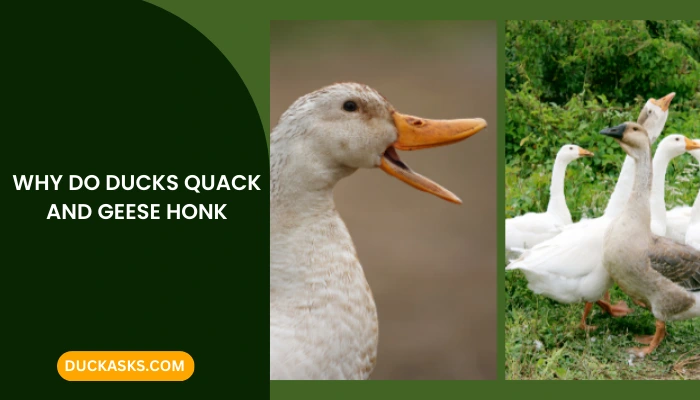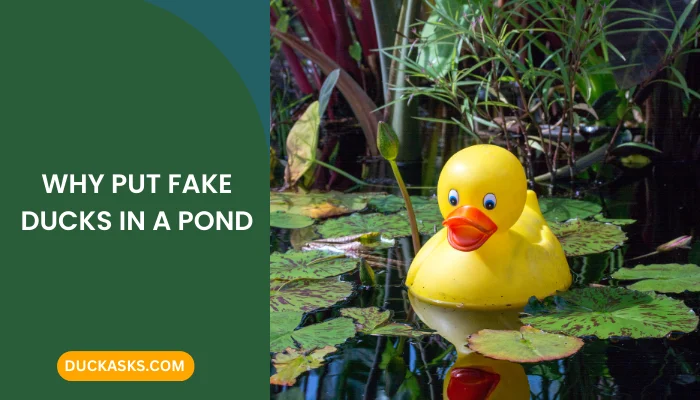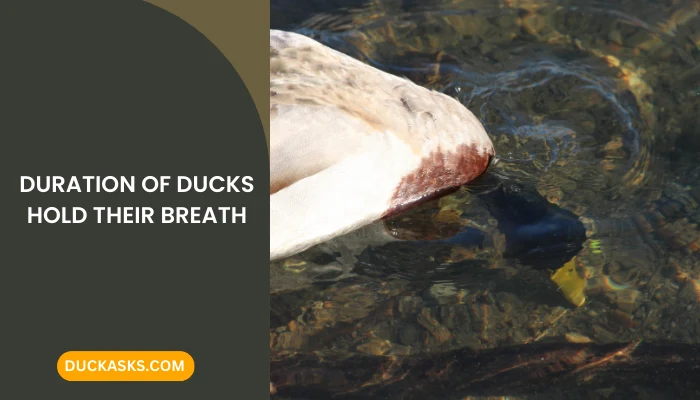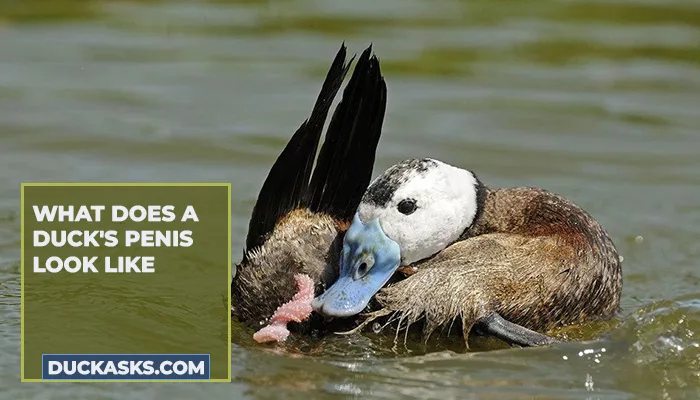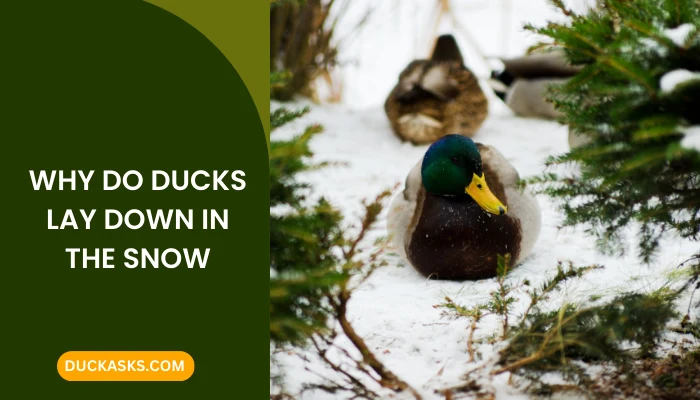Do Ducks Produce Milk?
You must’ve wondered once in a while whether mother ducks feed milk to their ducklings. But the question is, “do ducks produce milk in the first place?
Well, the answer is no! Ducks are classified as avian animals. And birds do not produce milk, with a few notable exceptions, including pigeons, doves, flamingos, and penguins. They don’t have the organ that lets them secrete milk for their young.
So, want to know why ducks don’t produce milk? Then binge on till the end of the article.
Related articles about fun facts of ducks!
Why Can’t Ducks Produce Milk?
As birds, ducks do not have the inherent mechanism that allows them to lactate and give milk to their duckings. This is in contrast to mammals, which have this system.
Mammals who have just been born cannot digest solid food and must consume the milk their parents produce to survive.
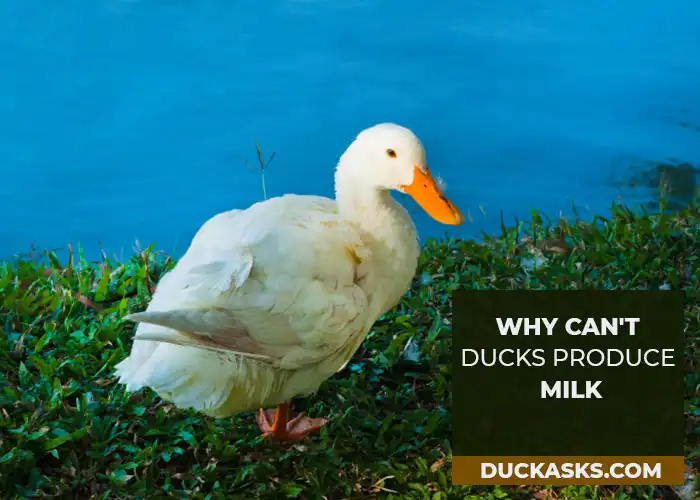
In most cases, mammals give birth to their young through cesarean delivery, but ducklings and other young birds emerge from their eggs having first undergone the process of hatching. After that, young birds normally forage for their own food while being guided by their parents.
However, certain birds provide their young with what is known as “crop milk,” which is a liquid secreted by the crops and given to the species’ young.
What Is the Role of Parent Ducks If They Cannot Provide Milk?
Even though ducks cannot make milk for their young, they need to be there throughout the early stages of their young’s growth. This is to ensure that their ducklings can receive adequate nutrition.
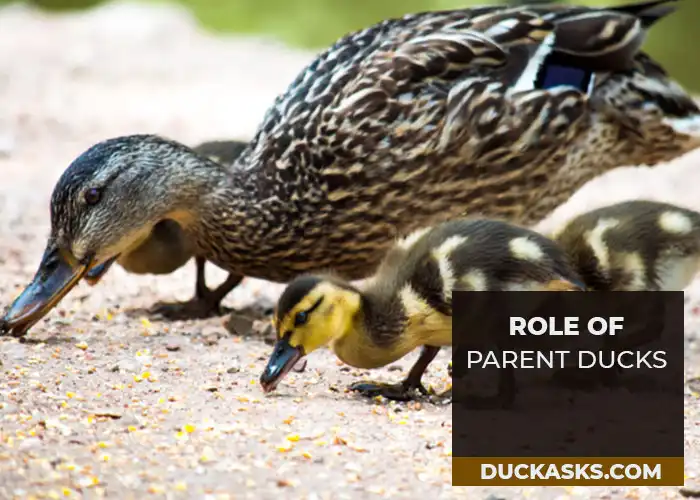
Helps Regulate Ducklings’ Body Temperature
Moreover, a mother duck plays a vital role in regulating the body temperature of their ducklings by covering them with their body.
This also protects them from dangers such as direct sunshine and severe weather conditions such as snow, hail, and rain.
Helps to Locate Food
Ducklings have a natural instinct to locate their own food, so they will often consume whatever they can find to eat.
Therefore, their parents assist them in locating an appropriate environment in which they may locate food and protect themselves from predators.
Instructs to Survive
Ducks can often brood up to 12 ducklings at once and can instruct their youngs ducklings to survive in the wild.
They will often take care of their ducklings until they’re older enough to fly or be self-dependent.
How Do Ducklings Get Nutrition If Not from Duck Milk?
The term “omnivorous” is commonly used to describe ducklings, as they can discover and acquire their own food from the moment they are born.
Since ducks cannot produce milk for their young, it is the job of the parent duck to keep the ducklings safe from harm and locate an appropriate source of food for them.
Here are some ways ducklings find nutritional value in the wild:
- Aquatic Plants or Creatures: When floating on water, they could be interested in little aquatic animals or plants, which is important for developing their bodies.
- Plants or Bushes: Duckings might prefer anything from the ground, such as bushes or grass, according to their taste and not toxic.
- Proper Environment: These ducklings need to be kept warm for optimal growth. When ducklings are reared in a barn, they are often provided with a wide selection of food.
Some of the foods and procedures followed in the barn for development are:
- Distance Should Be Maintained: The farm breeders should keep an appropriate distance from the ducklings since they are fragile and can easily get hurt.
- Dairy Products: As ducks cannot generate their own milk for their young, you can provide various dairy products, such as cheese.
- Vitamin B: It is a good idea to provide vitamin B to ducklings raised in a barn so that they can have stronger bones and grow their bodies as they should. Infusing their diet with vitamin B boosters can also be an option.
- Crops: Cracked corn, oats, birdseed, and chopped lettuce are some dietary fibers that are important for ducklings’ growth.
- Fruits: Ducklings love to feed on fruit and quack happily afterward. It is important to cut them up into small portions so they can easily digest them. Some fruits ducklings enjoy are:
What Not to Feed Ducklings?
Ducklings will consume everything they can get their beaks on as long as it is appropriate for them. So, certain foods should be avoided. Below are some of the food types that you must avoid feeding the ducklings.
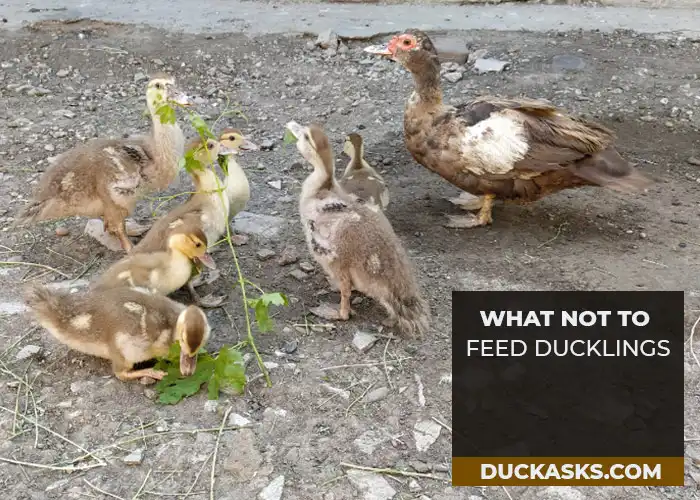
1. Dog or Cat Food
People have a habit of feeding food meant for dogs or cats, even though doing so can make the ducks sick and cause their droppings to smell bad. It is not advised to do so. In addition, the nutritional requirements of ducklings are not adequately met by these foods.
2. Chicken Food
It is another material that ducks frequently take; nevertheless, ducklings should not consume it since it does not fulfill the nutritional value of ducklings. Despite the fact that it includes protein, it lacks the essential components that ducklings require.
3. Some Greens and Shrubs
They will typically consume the majority of greens and shrubs, but you shouldn’t offer them:
- Milkweed
- Pennyroyal
- Azalea
- Bleeding heart
- Nightshade
- Rhododendron
- Wisteria
- Yew
4. Bread
In spite of the fact that they often have no trouble consuming bread, it is essential not to provide them with an excessive quantity of bread because doing so is harmful to their health.
A diet that includes popcorn, chocolate, onions, or any meal containing citrus should be avoided.
5. Milk
Although ducks are unable to produce milk for their young, other types of milk may be given to ducklings; however, if too much milk is given to the ducklings, it can cause their droppings to smell and cause them to become bloated.
Bottom Line
So, do ducks make milk? Well, no! They do not have the mammary gland that is present in mammals; thus, they cannot produce milk for their ducklings. Although mother ducks can’t produce milk, they still need to be present for the ducklings to keep them safe and get them developed.
Therefore, after going through this blog, we believe you should now have all the required information you need. So, if the blog was helpful, do share it and stay connected with us through Facebook, Twitter, and Pinterest.
Image Credit:
- Canva.com/photos
Article Reference:
- https://petkeen.com/what-do-baby-ducks-eat/
- https://a-z-animals.com/blog/what-do-ducklings-eat/
- https://kb.rspca.org.au/knowledge-base/what-should-i-feed-my-pet-ducks/
- https://www.hgtv.com/outdoors/gardens/animals-and-wildlife/plants-toxic-to-backyard-ducks


